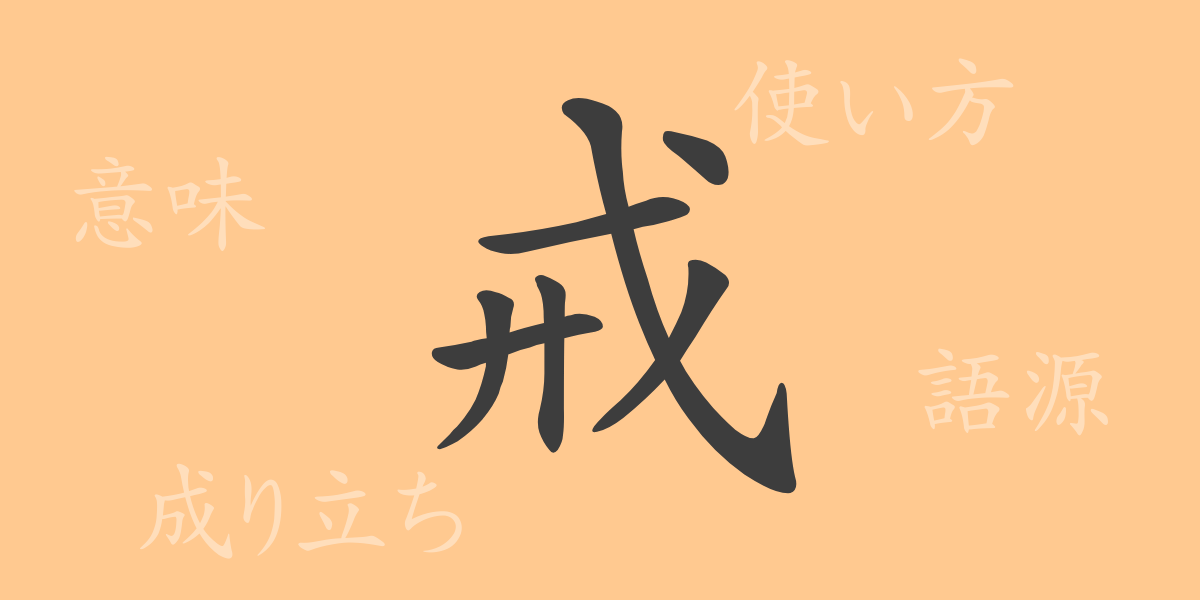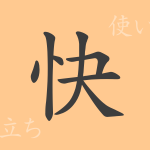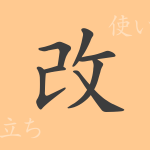In Japanese culture, Kanji are more than just characters. They carry deep meanings and can symbolize history and philosophy. The Kanji “戒” (Kai) is one such character with significant weight, reminding us of ethics and discipline in our lives. This article delves into the etymology of “戒” (Kai), its uses, and its role in the Japanese language.
The Origin (Etymology) of 戒 (Kai)
“戒” (Kai) is a Kanji character originating from ancient China, and its form implies the meaning of a hand governing speech. Initially, it meant to be cautious with one’s words, symbolized by covering the mouth with a hand. Over time, this concept evolved to signify self-control and vigilance over one’s actions in general.
The Meaning and Usage of 戒 (Kai)
“戒” (Kai) signifies self-discipline or admonishing others. In religious contexts, it is often used as a precept and also employed to indicate ethical guidelines or norms. In everyday conversation, it appears in the expression “戒める” (Imashimeru), meaning to caution or give warning.
How to Read 戒 (Kai), Stroke Count, and Radical
“戒” (Kai) is a common Kanji in Japanese, and its readings and basic information are as follows:
- Reading: The Onyomi (Chinese reading) is “かい” (Kai), and the Kunyomi (Japanese reading) is “いましめる” (Imashimeru).
- Stroke Count: It is made up of 9 strokes.
- Radical: The radical is “戈” (Hoko-zukuri).
Phrases, Idioms, and Proverbs Using 戒 (Kai) and Their Meanings
There are various phrases, idioms, and proverbs that include “戒” (Kai), such as:
- 戒める (Imashi-meru): To caution or warn oneself or others about their actions.
- 戒厳令 (Kaigenrei): A military order issued to maintain public order during emergencies.
- 自戒 (Jikai): A warning or caution directed at oneself.
- 警戒 (Keikai): To act cautiously in anticipation of possible danger or problems.
These expressions reflect the cultural values of respecting discipline and ethics in the Japanese language.
Conclusion on 戒 (Kai)
The Kanji “戒” (Kai) plays a significant role in the Japanese language as a symbol of self-control and ethical awareness. By tracing its evolution from its origin to the present day, we can gain a deeper understanding of its profound meanings and cultural background. Through “戒” (Kai), we are reminded of the importance of self-discipline in our daily lives and contribute to building a better society.

























